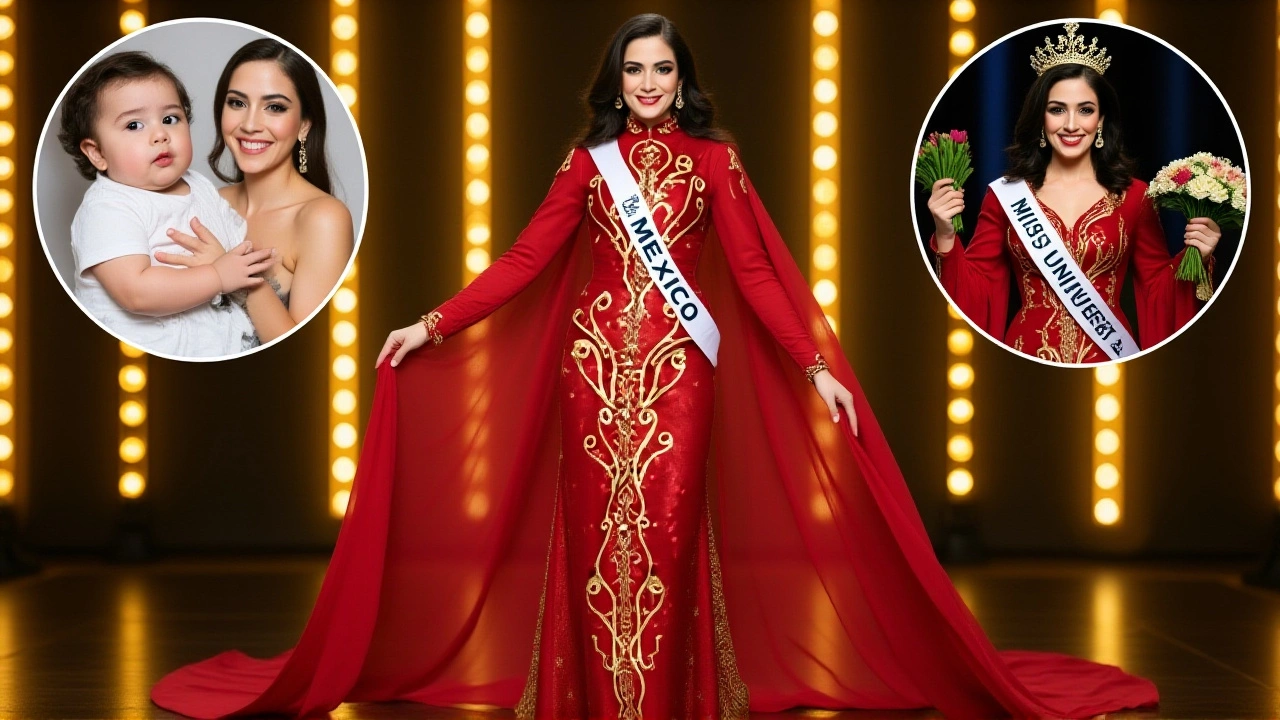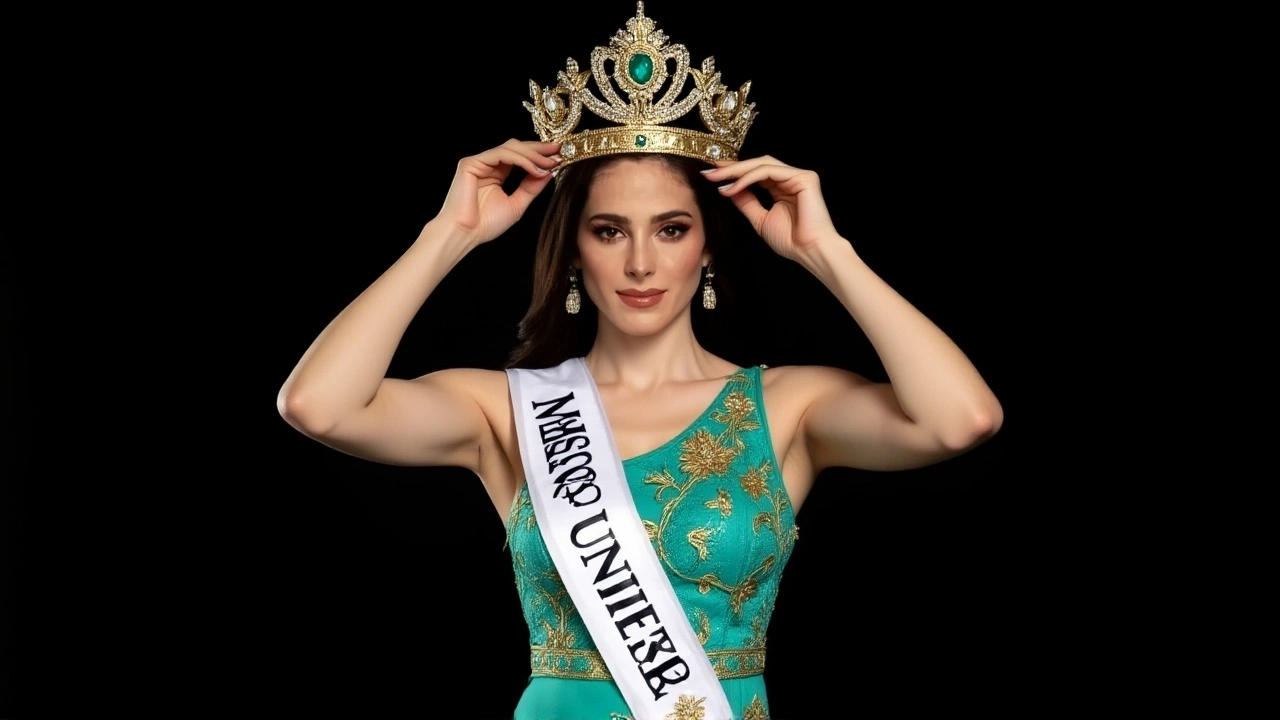When Fatima Flórez was crowned Miss Universe 2025 on November 16, 2025, at the Zappos Theater in Las Vegas, Nevada, the crowd erupted — but not just for the beauty, the gowns, or the glittering crown. They stood for the quiet defiance of a woman who had been told, just days before, that she was "too dark to win." The moment wasn’t just a victory. It was a reckoning.
A Crown Born in Controversy
The 73rd Miss Universe pageant, broadcast live to 150 million viewers across 190 countries, was supposed to be a celebration. Instead, it became a cultural turning point. The controversy began on November 14, 2025, during a backstage rehearsal at the same theater. Jacob D. Tejeda, director of the Miss Universe Organization since 2020, allegedly told Flórez, "You are too dark to win." The comment, overheard by at least 45 contestants, was never officially confirmed by Tejeda until after the crowning — but the damage was done. Flórez, a 24-year-old psychology student from Guadalajara, Jalisco, Mexico, said nothing in the moment. But when she took the stage as winner, her words cut deeper than any sash could. "I am proud of my skin color," she said, voice steady, eyes locked on the camera. "And I hope my victory inspires other young women of color to pursue their dreams." The arena fell silent for two seconds — then exploded into a standing ovation. Tejeda issued a formal apology the next day: "My comment was inappropriate and does not reflect the values of the Miss Universe Organization." But apologies don’t undo centuries of bias. By the time the final five were announced, Tejeda had vanished from the event. The Miss Universe Organization confirmed on November 16 that he had been placed on administrative leave. Maria Lopez, senior vice president of operations since 2018, stepped in as interim director.History in the Making
Flórez isn’t just Miss Universe — she’s the second Mexican woman to win the title. The first was Ximena Navarrete, crowned in 2010. Navarrete, now a media personality, sent a pre-recorded message during the broadcast: "You carried our pride with grace. This is for every girl who was told she wasn’t enough." Flórez won the national title, Miss Mexico 2025, on September 15, 2025, in Mexico City, defeating 32 other contestants. She received MXN 500,000 (about $28,500) and a scholarship to continue her psychology studies. But her global reign comes with a $500,000 prize package: a $250,000 scholarship, a year-long residency in a Trump International Hotel New York City apartment (valued at $200,000), and $50,000 in L'Oréal Paris products. Her reign lasts 371 days — until the 2026 pageant in Bangkok, Thailand on November 22, 2026. During that time, she’ll make 52 international trips promoting the "I AM UNIVERSE" mental health initiative, backed by a $2 million budget from the organization.
Who’s Really Behind the Crown?
The Miss Universe Organization has been under new leadership since October 2022, when Thai businesswoman Anne Jakrajutatip acquired the franchise. Her tenure has been marked by attempts to modernize the pageant — but Tejeda’s comment exposed a deep cultural rot beneath the surface. The judging panel, including Gigi Hadid, Chelsea Handler, and Padma Lakshmi, remained silent during the controversy — a silence many critics found telling. Dr. Elena Rodriguez, a sociology professor at the University of Southern California and expert on Latin American beauty norms, called Flórez’s win "a seismic shift." "Colorism in Latin America isn’t just about skin tone — it’s about power, access, and who gets to be seen as beautiful," she said in a November 17 interview. "For a woman with Purépecha heritage to win — after being told she’s not worthy — that’s not luck. That’s resistance." Mexican President Claudia Sheinbaum issued a public statement from the National Palace in Mexico City on the night of the crowning, inviting Flórez to a ceremonial reception. "Your victory is not just yours," she said. "It belongs to every girl who was told to lighten her skin to be accepted."The Ripple Effect
The pageant generated $15 million in broadcast rights and $8 million in sponsorships, with Ford, Swarovski, and Hilton as key partners. But the real value may lie in the conversation it ignited. Social media spiked 400% in engagement during the final hour. #TooDarkToWin trended globally for 72 hours. Brands began pulling ads from past Miss Universe campaigns with lighter-skinned winners, citing "inconsistent messaging." The first runner-up, Anongwan Thepsuthin of Thailand, and second runner-up Camila Avella of Colombia, both spoke out in interviews after the event. "We’ve all heard those words," Avella said. "Fatima didn’t just win a crown. She took back a narrative."
What Comes Next?
The Miss Universe Organization has promised a full internal investigation into Tejeda’s conduct and the culture of the organization. But questions linger: Who else made similar comments? Why did it take a crown for anyone to speak up? And will this moment lead to real change — or just another performative apology? Flórez’s reign begins now. She’ll travel to 27 countries in her first six months alone, visiting schools, mental health clinics, and community centers. She’s not just a beauty queen anymore. She’s a symbol. And symbols, once raised, are hard to bring down.Frequently Asked Questions
How did Fatima Flórez’s win challenge colorism in Latin America?
Flórez, who has mixed Purépecha and European heritage, became the second Mexican woman to win Miss Universe after being told she was "too dark to win." Her victory directly contradicts long-standing beauty standards in Latin America that privilege lighter skin and European features. Sociologist Dr. Elena Rodriguez noted this win challenges a system that has historically marginalized indigenous and Afro-Latinx women in media and pageants — making her triumph a symbolic rejection of systemic bias.
What happened to Jacob D. Tejeda after his controversial remark?
Tejeda, director of the Miss Universe Organization since 2020, issued a public apology on November 15, 2025, after allegedly telling Flórez she was "too dark to win." Within hours, the organization placed him on administrative leave. Maria Lopez, senior vice president of operations, assumed interim director duties while an internal investigation is underway. No formal termination has been announced yet, but industry insiders say his position is untenable.
What is the value of Fatima Flórez’s prize package?
Flórez’s prize package is valued at $500,000 and includes a $250,000 scholarship, a one-year residency in a Trump International Hotel New York City apartment (valued at $200,000), and $50,000 in beauty products from L'Oréal Paris. She also receives a $2 million budget to promote the "I AM UNIVERSE" mental health initiative during her 371-day reign, which includes 52 international trips.
Who were the top contestants in Miss Universe 2025?
The top five were: Fatima Flórez (Mexico, winner), Anongwan Thepsuthin (Thailand, first runner-up), Camila Avella (Colombia, second runner-up), Stephany Abasali (Venezuela), and Roshmitha Harimurthy (India). The top ten also included contestants from Brazil, Canada, France, Nigeria, and the United States. The pageant featured 85 total contestants from around the world.
How does this compare to past Miss Universe controversies?
Past controversies often centered on judging bias or political statements — but this is the first time a director’s racially charged comment directly preceded a winner’s crowning. The 2015 win by Pia Wurtzbach, who faced judging errors, sparked outrage but no internal discipline. Here, the organization took immediate action against leadership, signaling a potential cultural shift — though whether it’s lasting remains to be seen.
What’s the significance of Mexico’s second Miss Universe win?
Mexico’s only previous winner was Ximena Navarrete in 2010 — a win that felt like an anomaly. Flórez’s victory, 15 years later, suggests Mexico’s beauty standards are evolving. Her indigenous heritage, the public backlash against colorism, and the presidential endorsement all point to a national reckoning. For many Mexicans, this isn’t just a pageant win — it’s a validation of identity.
